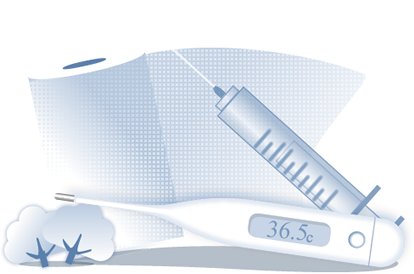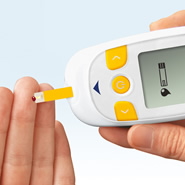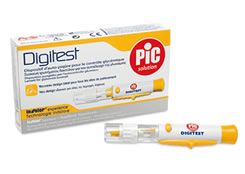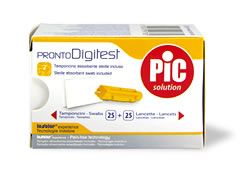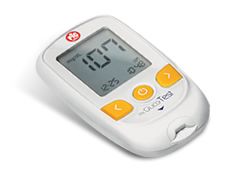
Checking blood glucose levels for everyone, not just for people with diabetes
So you think you might have diabetes? Or do you just want to find out your blood sugar levels? Here are a few rules to follow before your screening, like fasting overnight and not smoking.
Do you think you're at risk of diabetes?
Do you not exercise or do you suffer from high blood pressure? Then it's time to check your blood glucose. You need to be aware that there are other established risk factors for diabetes. As well as physical inactivity and high blood pressure, we suggest you check your blood glucose levels if you have relatives like parents or siblings who suffer from Type 2 diabetes, if you're part of a high-risk ethnic group (such as African-Caribbeans) and if you have low levels of HDL cholesterol (250 mg/dl). If you're a woman, have a blood glucose test if you've given birth to a baby weighing more than 4 kilograms or you had gestational diabetes, have cardiovascular disease or suffer from polycystic ovary syndrome or other signs of insulin resistance. So you don't fall into any of these categories? It's still a good idea to check your blood glucose every 3 years over the age of 45.
You don't have diabetes, but you want to check your blood sugar?
Do you think you might have diabetes or do you only want to check your blood glucose levels? You'll have to do a screening at a lab. The only rules for doing it are fasting overnight and not smoking. Avoid coffee, tea and milk; keep to drinking just still water. But be aware that you can't have a screening for blood glucose levels if you've had an infection recently (or you've got one) or if you've been admitted into hospital during the 6-8 weeks before the date of the test. Remember too to tell the doctors if you are taking any medication or are having your period.
Don't do any physical activity just before a blood glucose test
Physical activity reduces the amount of glucose in the blood, which could mean a false result in the test. To avoid getting incorrect figures, don’t do any intense physical exertion right before the test.
Put out your cigarette to avoid incorrect results
Another useful piece of advice about taking a blood sugar test is to avoid smoking in the time that you get out of bed to after the sample is taken.
No alcohol before the test
Your test will tell you the accurate levels of sugar in your blood, but only if you avoid drinking alcohol 2-4 hours before the sample is taken. A drink of spirits or a bottle of wine will reduce blood sugar and risk compromising the results of the test.

